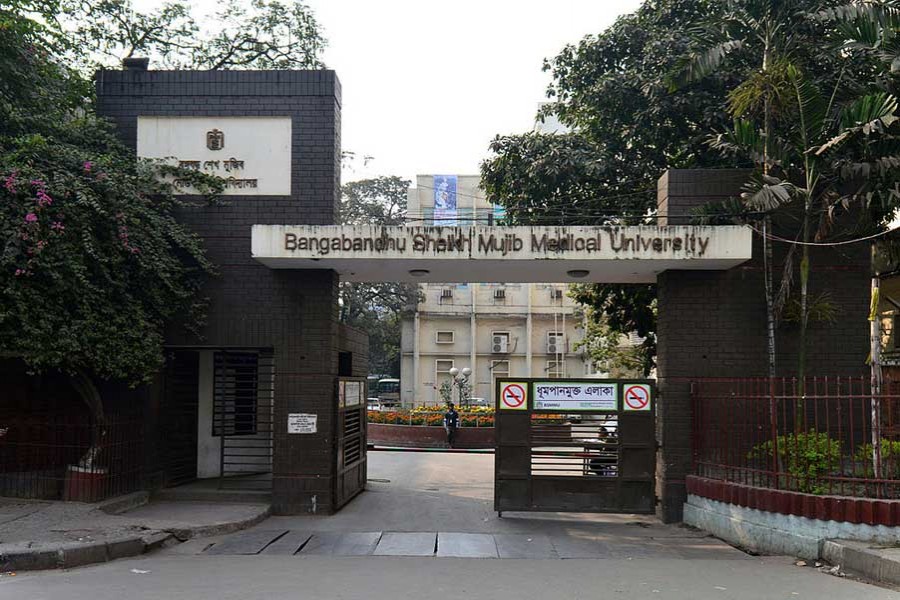Bangabandhu Sheikh Mujib Medical University (BSMMU) has introduced the facility to examine chromosomal or genetic defects in fetuses during pregnancy for the first time ever in the country to detect autism or birth defects.
BSMMU inaugurated the facility at an event at the university in Dhaka on Tuesday organised by the Department of Obstetrics and Gynecology, Feto Maternal Medicine, Radiology Imaging and Laboratory Medicine.
BSMMU Vice-Chancellor Prof Md Sharfuddin Ahmed inaugurated the facility as the chief guest, emphasizing on screening of pregnant mothers as it could reduce the detection of any issue in fetuses during pregnancy.
BSMMU VC termed the day a memorable day for the university.
“If we can do early screening of pregnant mothers, it is possible to reduce the burden on the country,” he added, saying that the university has also started screening projects for children after birth.
There are about 250,000 children with Down syndrome in the country, BSMMU officials said at the event.
“From now on, the risk of down syndrome in fetuses and other chromosomal abnormalities in the mother's womb can be tested at BSMMU from the period of 11 to 14 weeks or when the size of the baby is one and a half to two inches.”
If a high risk is found in the test, it can be 100 per cent confirmed through another test, according to a BSMMU press release.
Down syndrome is a type of chromosomal abnormality. The number of children with Down syndrome in the country has been on rising due to a lack of awareness. Most of the babies with the syndrome die after birth because most of them have congenital heart problems which are blamed for increased neonatal mortality.
And, those who survive become a burden on the family and the country as mentally handicapped people, said BSMMU specialists at the event.
In developed countries like the US, it is mandatory for doctors to give the mother an idea about down syndrome while providing services to the pregnant mother, but in our country, it is neglected, they added, the release quoted.
According to the World Health Organization, about five and a half thousand, or about fifteen (15) babies are born with down syndrome in the country every year.
Specialists warned that the disease is also linked to conceiving babies at older ages. One out of every 1,200 pregnant mothers over the age of 25, and one out of every 900 mothers over the age of 30 may have a baby with down syndrome.
But after the age of 35, the risk increases rapidly. One out of every 350 pregnant mothers over the age of 35 and one out of every 100 mothers over the age of 40 may have a baby with down syndrome, BSMMU specialists warned.


